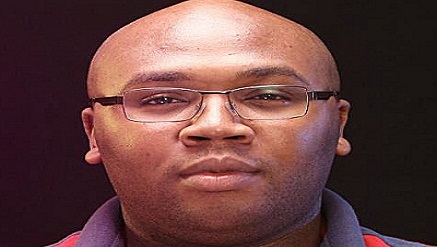Broadcasting
iROKOtv Unveils New Content Package for Internet TV Service

iROKOtv.com, the world’s most popular Internet TV platform for African entertainment has unveiled a brand new international content package for its subscribers on the continent, to include TV series and movies from around the world.
New content categories introduced on the platform include Hollywood, Bollywood, Telenovelas and Korean programming, to complement the platform’s extensive Nollywood catalogue of over 10,000 hours.
For as little as $2.50 a month, subscribers throughout English Speaking Africa (ESA) can now access an unrivalled and affordable international online content package featuring Hollywood royalty, alongside the likes of Nollywood favourites Mercy Johnson, Majid Michel and Mama G.
Launched in December 2011, iROKOtv.com is currently the 11th largest Pay TV operator in Africa, with ambitious plans to grow to a top 5 position.
Having secured additional funding early on in 2014, bringing the total raised from Tiger Global, Kinnevik and Rise Capital to $25M, the VC-backed pioneer of African Internet TV is rolling out its international content strategy across the continent, in a push to make OTT delivery a mainstream means of affordable and legal content consumption across Africa.
Jason Njoku, iROKOtv.com co-founder and CEO said, “We have been passionate about bringing affordable content to viewers across Africa. This is just another milestone towards that. Internet TV will enable hundreds of millions of fans across the continent to finally be able to access awesome content.
“We see the web and mobile platform almost as equal to DTH and DTT platforms in the next few years and our focus is on achieving this in Africa, supplying the 800-million strong population of Sub Saharan Africa (SSA) with the best content on the planet, be it from Nollywood, Hollywood or Bollywood.”
The subscription service allows for unlimited, commercial-free viewing and in an effort to conquer the ongoing challenge of expensive data charges across Africa, all new content will also be subjected to advance encoding, allowing files to be compressed and significantly reduce costs associated with video streaming, whilst keeping picture quality as high as possible.
Pay TV in Africa is the fastest growing form of media on the continent and with the emergence of DTH and the rapid rise of DTT over the last 2 years, it is predicted that Internet TV will become the third distribution platform.
The mobile revolution is set to propel this growth of internet-enabled devices, which will continue to grow as data becomes more affordable. The figure for such hardware devices is set to reach the hundreds of millions by 2017. Pay TV subscriptions across Africa currently stand at 10 million, with international bundles costing as much as $40 per month, making quality content unaffordable for the majority of the continent and therefore leaving the market open to extensive piracy.
Today’s announcement from iROKOtv.com sees the company push for legally acquired quality content, at an affordable price for more millions more Africans.
Njoku added, “We polled thousands of iROKOtv.com users in SSA and 80% indicated they didn’t have Pay TV access. We feel our audience complements existing players and we are excited to be contributing to the Pay TV universe across Africa. However, our audience combats challenges not faced by their Western counterparts, such as a lack of constant electricity supplies to power their mobile phones, laptops and tablets, so we have to design our products within these parameters. We have spent the last three years understanding how to address these challenges, as well as focussing on how to deliver awesome, affordable and legal content in extreme bandwidth-light environments.”
Whilst the company plans to expand its international library, there will also be a renewed focus on local films, TV series and documentaries with at least 50% of the iROKOtv.com catalogue being homegrown African content.
iROKOtv.com currently holds the world’s largest online catalogue of Nollywood movies, totalling 5,000+ movies equating to 10,000+ hours of content. At present, the platform attracts viewers per month from 178 countries around the world and has offices in Lagos, New York and Johannesburg.
Since its launch in 2010, iROKOtv.com has closed on $25Mn of international VC investment from Tiger Global, Kinnevik and RISE Capital over five rounds and is valued at over $50Mn.
Broadcasting
Luft Pay TV Launches in Lagos, Promises to Revolutionize Entertainment

Luft Pay TV has officially launched in Nigeria’s Pay TV landscape, bringing a fresh perspective to home entertainment.

Officials of Luft Pay TV at the launch
The brand’s dynamic debut in Lagos recenlty, drew media executives, content creators, industry stakeholders, and entertainment enthusiasts.
Yemi Adebowale, head of Corporate Communications and Media at Luft Pay TV, emphasised the brand’s mission to simplify entertainment and provide real value. “Luft Pay TV is more than just another player in the market.
He said, “We’re here to simplify entertainment, eliminate confusion around billing, and provide real value with high-definition content that reflects both global quality and local identity.
Luft Pay TV’s standout feature is its all-in-one subscription model, offering over 35 premium channels for ₦7,500 per month.
The channel lineup includes Sports, Live sports action, Movies: Nollywood and Hollywood films as well as Kids’ Programming, Documentaries, Music and Lifestyle content.
“Decoder and STB Kit Prices: Decoder: ₦25,000 – Complete STB kit with accessories: ₦35,000. As a proudly Nigerian brand, Luft Pay TV is committed to promoting local storytelling through partnerships with indigenous content creators.
“This initiative aims to project African stories globally and provide an inclusive, affordable, and proudly African entertainment experience to Nigerians everywhere.”
Luft Pay TV has commenced nationwide installations across the six geopolitical zones, supported by a growing distribution network and robust customer service infrastructure.
This ensures a seamless user experience for subscribers
With its innovative approach and commitment to Nigerian talent, Luft Pay TV is poised to revolutionise the television experience in Nigeria.
Broadcasting
When Legacy Meets Preparedness – Olusegun Alebiosu as CEO, Firstbank Group

By Aniekan Ezekiel
What happens when legacy meets preparedness? What results from such a combination? Let us not be in a hurry to put forward any answers yet. Instead, let us consider first the opposite situation: When legacy meets unpreparedness.

The world abounds in examples of this distressing situation. A dynasty that has built wealth from generation to generation, with its illustrious heirs providing generational leadership, finds itself in a strange phase where an ill-prepared heir takes over the reins and in that same generation, not the next, wipes out the entire family fortune built over several generations.
We see the same thing with nations. History is replete with examples of great nations built by great leaders, which slid into oblivion when they were hit by arguably the greatest misfortune that ever befalls humanity – bad leadership. It is the reason American author and leadership expert John Maxwell asserts, “Everything rises and falls with leadership.”
As with nations, so with organisations. We see organisations that have thrived for decades and over several generations, get a new leader who is not prepared for such leadership, and the leader pushes the organisation to the brink of collapse.
Contrast this picture with the situation at Nigeria’s most enduring corporate organisation with the most amazing legacies of firsts, First Bank of Nigeria Limited, which witnessed a leadership transition about a year ago. Faced with a number of quality options in and outside the then management team, the decision-makers at the bank and its parent company FBNHoldings, now First HoldCo Plc, had to be clear-minded about who could become the new Chief Executive Officer of FirstBank Group.
Equally important as the need for continuity was the non-negotiable requirement for capacity to manage the ship of the 130-years-plus institution to sustain its enviable legacies and consolidate the gains made in recent years. The search was for someone with a steady head and hands (talk of risk control and mitigation), in addition to an excellent track record of sterling performance and achievements.
Fortunately, fate was on their side. They did not have to look outside. Right there before them was someone who understood all kinds of risks and how to control and mitigate them. He had been with FirstBank since 2016 when he joined as Group Executive / Chief Risk Officer. Then in January 2022 he was elevated to Executive Director / Chief Risk Officer and Executive Compliance Officer.
This man has given nearly three decades of his working life to the banking and financial services industry. He has under his belt a rich tapestry of cross-functional experience in credit risk management, financial planning and control, credit and marketing, and trade. His cross-functional exposure also includes corporate and commercial banking, agriculture financing, oil and gas, transportation, including aviation and shipping, and project financing
Meet Olusegun Alebiosu, the man history had prepared and the one decision-makers chose among the quality options. He was appointed substantive Chief Executive Officer of FirstBank Group in June 2024, having acted in that capacity since April 2024 when the former CEO left.
Determined to build on the bank’s legacies while navigating the ever-changing landscape of the financial services industry, Alebiosu has shown unwavering commitment to lead the bank through a transformative period that places emphasis on strategic consolidation, technological advancement and market expansion.
Alebiosu’s approach to sustaining the legacies of firsts at FirstBank, which has been at the vanguard of accelerating Nigeria’s digital payments as the first bank to issue over 13 million cards to customers, draws from his vast professional experience which began with Oceanic Bank Plc, now Ecobank Plc, in 1991. Between then and joining FirstBank in 2016, he had worked at Coronation Merchant Bank as Chief Risk Officer, at African Development Bank Group as Chief Credit Risk Officer and at United Bank for Africa as Group Head, Credit Policy and Deputy Chief Credit Risk Officer.
Under one year of his appointment as substantive CEO of FirstBank, Alebiosu’s strategic consolidation efforts have demonstrated that he is a worthy successor, not an ill-prepared or unprepared one, proving the decision-makers right. Understanding the critical role of its human capital in sustaining the bank’s legacies, Alebiosu has invested himself and the bank’s resources in promoting staff welfare.
A comprehensive review of the bank’s compensation structure was undertaken to position it within the 75th percentile of the industry, making the bank more retentive of, and attractive to, the best talents. The highest number of staff promotions across various grades in the last five years has happened under Alebiosu’s watch, with 1,654 employees being elevated in one single promotion cycle.
Under his leadership, over 2,186 new hires have been recruited across key functions and subsidiaries, with a large number of them deployed to the sales function to ensure that retail customers are adequately served. Staff are now more engaged based on the high employee engagement score of 86% achieved in the April 2025 WorkBuzz survey, indicating remarkable progress in the bank’s multi-pronged efforts to promote a positive and inclusive workplace culture.
This drive to reinforce a culture of inclusion and recognition has been accentuated by the launch of a group-wide culture transformation initiative with the goal of embedding the core values of integrity, excellence and innovation. It has also been strengthened by a renewed focus on inclusion, collaboration and high performance. Also contributing was the staging of a FirstBank Employee Appreciation Day 2025 featuring, among others, a personalised appreciation video message from the CEO to all employees across the group throughout Africa and beyond. The inclusion message is further boosted by the launch of the inaugural edition of the bank’s pioneering initiative, Mandarin Language School, to bolster the bank’s expansion in the Asian market.
Expansion is a critical plank in FirstBank’s new strategic planning horizon, under Alebiosu’s leadership. Taking off this 2025, the plan seeks to reinforce the bank’s market dominance across all operational regions and it includes deliberate expansion into new markets within and outside Africa.
Beyond geographical and horizontal expansion, Alebiosu’s plan has also targeted a skyward expansion. Or how else does one describe the groundbreaking ceremony in March 2025 for the bank’s new green-certified, 44-storey iconic head office building in Eko Atlantic City, Lagos State?
Alebiosu is also prioritising the acceleration of process automation in recognition of the importance of digital transformation. It is a massive push for technological advancement that includes adopting robotics technology and artificial intelligence at scale, to give the bank an unassailable competitive advantage among its peers in the industry.
The bank has deployed digital tools to enhance seamless account opening and optimised backend systems and customer service delivery. Two additional Digital Experience Centres (DXCs) have been launched – one at Lekki Admiralty Way, Lagos State and the other at its UNN branch, Nsukka, Enugu State. Also, the bank’s agent network has expanded to over 280,000, a 50,000 increase from the 230,000 agents it had in 2023.
As expected, shareholders, among other stakeholders, have been observing the strides the bank has been making under Alebiosu’s leadership, with a keen eye on the numbers. Fortunately, again, the bank’s results for the financial year ended December 2024 speak volumes, with after-tax profit of its parent company rising to the highest point it has reached in the last 12 years, according to the company’s latest financial statement.
In recognition of his achievements within such a short period and his exemplary leadership, Alebiosu was honoured at the World Business Outlook Awards as “Banking CEO of the Year – Nigeria 2025”. He has also been honoured with the “Special African Banking Leadership Award” by African Leadership Magazine. This was in 2024.
The story of Alebiosu’s leadership at FirstBank has clearly been one of preparedness meeting legacy. Working with the board and management team, he has consistently sustained the bank’s legacies and also consolidated its recent gains in ways that will ensure the gains keep compounding. FirstBank, more than ever before, is poised for greater intra- and intercontinental growth and impact in the years ahead.
Broadcasting
Canal+ Buyout Of South Africa’s MultiChoice one Step Closer

South Africa’s competition authority announced Wednesday it had approved the buyout of Africa’s largest pay TV enterprise MultiChoice by France’s Canal+, which wants to expand its footprint on the continent.

The merger, which has been in the works for nearly a year, needs the final go-ahead from the commission’s Competition Tribunal, it said in a statement.
Canal+ holds around 45 percent of MultiChoice’s shares and offered last year to acquire the remainder for 125 rand (6.16 euro) per share.
Canal+ is present in 25 African countries through 16 subsidiaries and has eight million subscribers, according to the French group.
MultiChoice operates in 50 countries across sub-Saharan Africa and has 19.3 million subscribers, it said.
It includes Africa’s premier sports broadcaster, SuperSport, and the DStv satellite television service.
“This is a major step forward in our ambition to create a global media and entertainment company with Africa at its heart,” Canal+ CEO Maxime Saada said in a statement.
The commission said its approval of the merger was subject to public-interest conditions worth about 26 billion rand over three years, including increasing the shareholding of people disadvantaged under South Africa’s white-minority apartheid regime.
It will also maintain the MultiChoice headquarters in South Africa.
A date for the Tribunal’s decision on the merger has not been announced but Canal+ said it was aiming for the deal to be completed by early October.

 Telecom2 days ago
Telecom2 days agoTelcos Warn of Nationwide Telecom Blackout over Diesel Shortage

 E-Financial2 days ago
E-Financial2 days agoCBN, SEC Fine Access Holdings N1.21Bn for Infractions

 Telecom2 days ago
Telecom2 days agoNigerians Spend N5.3 Trillion on Telecom Services

 News2 days ago
News2 days agoKaspersky Uncovers Dero Crypto Miner Spreading via Exposed Container Environments

 E-Financial2 days ago
E-Financial2 days agoFirst Asset Management Launches N100 Billion Infrastructure Fund to Provide Sustainable Capital for Infrastructural Development Across Sectors

 Telecom2 days ago
Telecom2 days ago13 New Things Google Launched at I/O 2025

 Broadcasting2 days ago
Broadcasting2 days agoCanal+ Buyout Of South Africa’s MultiChoice one Step Closer

 General News2 days ago
General News2 days agoIFC, Standard Chartered Expand Lending in Local Currencies


























